Am I planning right for retirement, especially in a downturn? Financial experts answer some common questions
The COVID-19 pandemic might have thrown retirement planning into disarray. Can we still retire by our ideal age? Is depending on CPF enough? We hash out conundrums faced by some Singaporeans with two financial experts.

Chuin Ting Weber (left), CEO of MoneyOwl, and Kenneth Lou (in black), CEO of Seedly, answer questions about retirement planning.
SINGAPORE: At 31, Bryce Ang has an upcoming wedding and a Built-to-Order flat soon to pay for. While he knows it’s also important to plan early for his nest-egg, he wonders: Is he doing enough?
Muthukumar Aiyakannu, 55, is close to retirement. But he took on a new job after leaving the security industry this year - because he feels he started planning too late, and is worried he doesn’t have enough medical insurance coverage.
When you’re planning for retirement, challenges arise at different stages of life, and financial experts always emphasise that one should start early.
But the COVID-19 global recession – which some expect to last a year or more – might be throwing plans into disarray, with folks having to tighten their belts or deal with income losses.
Take entrepreneur Sharyln Neo, 40, who sank her savings into her beauty business – and now must grapple with its uncertain future. “Would I still be able to achieve my retirement goal of having S$5,000 a month on hand when I am 60?” she wonders.
How do you know if you’re on the right track overall? Is investing in property or the stock market now a wise way to build your nest egg? And how do you cope if you’re of the sandwich generation?
Two financial experts – Kenneth Lou, 28, co-founder and CEO of Seedly, and Chuin Ting Weber, 45, CEO and CIO of MoneyOwl – answer questions you may be asking, whether you’re 30, 40 or 55.

1. Times are hard. I’m having trouble saving much, let alone for retirement. What can I do?
While it’s advised that you start saving as early as possible for retirement in order to enjoy the effect of compounded interest, the key rule of good financial health is that you should first keep an emergency fund ready for life’s curveballs.
We always recommend that you have an emergency fund of at least six months, in case you lose your income,
says Chuin Ting. Without this rainy-day stash, “what happens is that you start dipping into your investments, and that can hurt your long-term goals.”
Entrepreneurs would need more – she recommends nine to 12 months of emergency funds, before setting aside cash for anything extra like investments.
In Sharyln’s case, the mother of two prepared six months of cash flow before starting her skin care business about a year ago. In addition, she and her husband have six months of personal emergency funds.
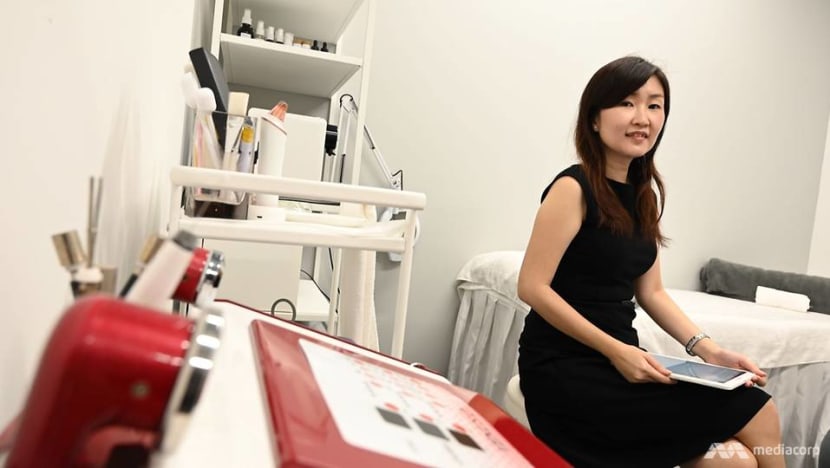
But her worry is that since starting her latest venture, she hasn’t been saving, preferring to reinvest her money in it.
Kenneth advises entrepreneurs like her to remember to prioritise themselves. “You must protect yourself as the person running the business. You have mouths to feed at home,” he says.
And instead of looking for one magic solution to such a dilemma, Chuin Ting advises exercising day-to-day financial discipline and “good financial habits”. What will “help us become rich” boils down to the “boring” concept of “having a surplus and controlling our expenses”.
2. I’m having trouble keeping up with expenses like insurance premiums. What should I do?
Reassess whether you're paying too much for insurance in the first place. If you are, consider restructuring your insurance, says Chuin Ting.
“If you have a whole life plan, the premiums tend to be quite high. You could discuss putting it into a paid-up position. That means you don’t pay anymore, but the insurance company will calculate the sum assured based on your cash value,” she says.
She also suggests considering replacing whole life or more expensive plans with a low-cost term insurance that can give you the same coverage at much lower cost.
Don’t stop paying for your insurance premiums if you can help it, says Kenneth – indeed, factor them into your emergency funds.
The reason: Once your policy lapses, it will be more difficult to get it reinstated in the future - or more expensive, especially if you develop medical conditions.
If you really cannot afford to pay, Kenneth advises reaching out to your insurer to ask for a premium holiday. This entails taking a break from paying your premiums for as long as the policy has sufficient cash value to keep it going.
Alternatively, he suggests, take out premium loans if you can afford to - but repay your loan as soon as possible so you’re not saddled with debt.
WATCH: Planning right for retirement, even in a recession: Ages 30+ and 40+ (20:04)
3. Is the current stock market rally a good chance to boost my nest egg?
Terry Tan considers himself financially risk averse. Still, at 56, he found himself with spare cash – so in August 2020, with the stock markets rallying, he decided to sink in S$30,000. As of November, the property agent and private-hire driver had made a 10-per-cent return.
But Kenneth is quick to emphasise, this S$30,000 should be money that Terry could “afford to lose entirely” in the first place.
“You don’t want the case where you want to retire at 50, and suddenly because the market is bad, you have to work until 60 – that’s 10 years of your life you’re never going to get back,” he said.
In Terry’s case, he has already – aside from other savings – maxed out his Medisave and his CPF Retirement Account to the current Enhanced Retirement Sum, to provide him with his projected monthly needs of S$2,000 in retirement income.
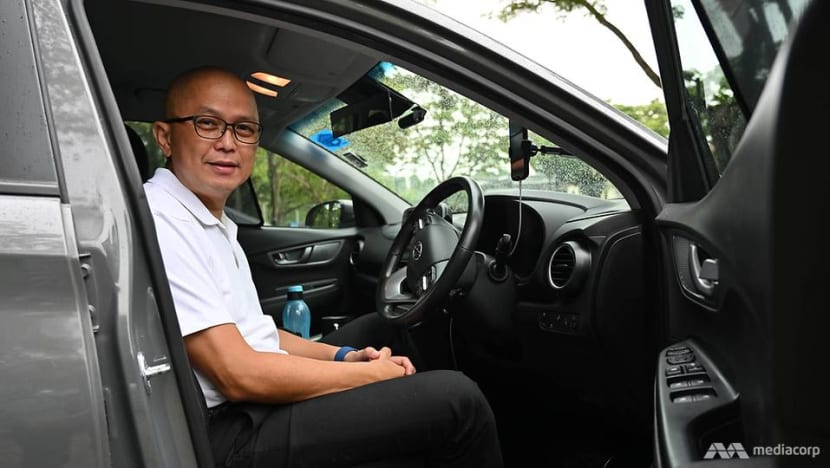
Trading in stocks and forex is more “akin to gambling” than investment, says Chuin Ting. And even in retirement, one should take a long-term view “because you're not using all your money today”. Average life expectancy is about 85.
If you must invest, she stresses not chasing “outsized returns” by jumping “in and out every three months”. Get a balanced portfolio. “Keep it small, do not borrow. The worry is really about getting carried away.”
Younger folks, like 31-year-old Bryce, can indulge a greater risk appetite for long-term returns, notes Chuin Ting.
But if you don’t have the time to monitor your investments, exchange-traded funds (ETFs) and index funds may be a better way to go than individual stocks or forex trading.
“ETF or index funds basically track the market, so that over the long term, you’re able to realise returns (when) the economy grows. And you wouldn’t need to (spend) sleepless nights thinking about whether the stock is going up or down,” says Kenneth.
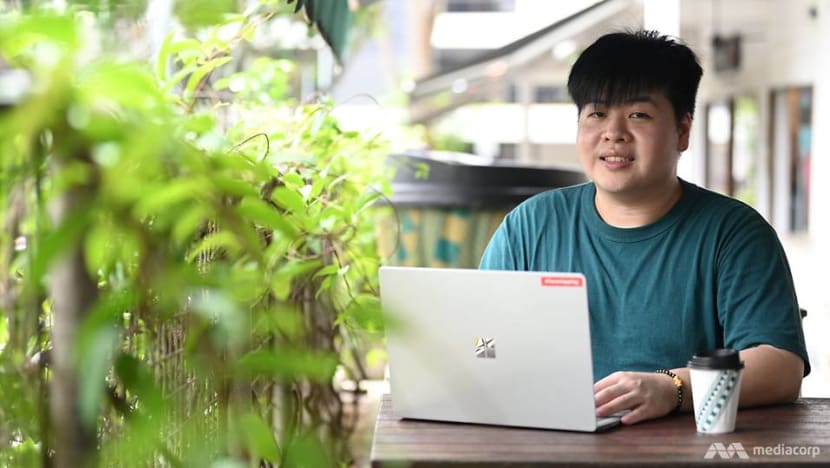
Lastly, while you may have spare cash to invest in the stock market, it’s important to ensure you also have non-liquid savings that you can’t touch for the long term, such as CPF.
4. I’m still young. Should I be topping up my CPF account or keeping my cash liquid?
At 29, Kenneth keeps both what he calls “a liquid and an illiquid stash”, a large part of which is in his CPF. He began saving for retirement four years ago with a robo-advisor investing in global ETFs. He also tops up his CPF every year – something he urges his clients to do.
Because I know that 30 years down the road, the money is going to be worth three times more than what it is today.
Having liquid savings is important for immediate goals such as a wedding and getting a house. Money that you put into CPF can’t be withdrawn before retirement age, Chuin Ting notes.
But even so, the advice from both advisors is to top up as early as possible. Ultimately, your CPF gives you a “very good, risk-free interest rate” above bank rates – especially now when the latter have fallen to as low as 0.05 per cent per annum.
You also want to enjoy the impact of years of compounded interest. For instance, Kenneth notes, S$7,000 in your CPF Special Account today would be worth over S$21,000 in 30 years. Current CPF interest rates range from 2.5 per cent to 5 per cent if you’re below 55.

Also, there is the Basic Retirement Sum (BRS) to keep in mind – this is the minimum you will need in your CPF at age 55 (provided you have a property to pledge) before you can withdraw the excess.
“Right now (as of 2020), the BRS is S$90,500. Based on my calculations, if you factor in the annual inflation rate of 3 to 4 per cent, this amount will be close to S$200,000 about 30 years down the road,” he says.
However, if you can’t spare more cash to top up your CPF, the normal contributions already put you in “very good stead from now till you retire”, as long as you continue to contribute, Chuin Ting adds.
5. Will my CPF be enough to retire on?
First, ask yourself what sort of retirement lifestyle you want, and calculate how much you might need. It’s important to take inflation and “unforeseen circumstances” into account, and add a “very huge buffer”, advises Kenneth.
For instance, if you project 20 years to go before your ideal retirement age and you estimate you’d need about S$4,000 a month, tag on another 20 per cent to make it S$6,000.
WATCH: What retirement on S$1,000-2,000 a month looks like (11:25)
Muthukumar, who turned 55 last year, projects that he’d need S$2,000 a month for his preferred lifestyle in retirement.
He’s met the CPF Full Retirement Sum (FRS) for 2020 of about S$181,000 - which means he’s due to receive up to S$1,490 a month from age 65 in CPF LIFE payouts. He would need to find around S$500 more in monthly retirement income.
Terry, 56, on the other hand, is continuing to top up his CPF to the Enhanced Retirement Sum (ERS) as it goes up each year. He now has about S$282,000, which would give him more than S$2,000 a month from age 65. This fully meets his ideal retirement income.
The retirement sums increase each year to cater to inflation and improvements in living standards.
“The base of our retirement planning should be the CPF LIFE payout,” Chuin Ting says.
CPF LIFE provides a good stream of income for the rest of your life. So you don't have to worry about outliving your savings.
Once your CPF is sorted, you can consider a “second layer” of additional income via investments if you can afford it.
WATCH: Planning right for retirement, when you're in your 50s (17:02)
6. Is property still a good idea as an investment for retirement?
While some, like Bryce and Sharyln, are pondering getting an additional property for rental income and investment, there are important things to consider before forking out a hefty sum.
Chuin Ting urges prioritising good financial health first – such as ensuring you have good insurance coverage and rainy-day savings. Then, set aside funds for investments and topping up one’s CPF, before considering sinking any spare funds into a second property.
An asset is not really an asset unless it gives you income.
"In the worst-case scenario that the rental income doesn’t come in, is it still okay for you?" she cautions. "Or do you have to dip into your emergency funds? Do you have to take other loans in order to finance that property?”
“The main thing is seeing whether you can afford the mortgage, and for how long this mortgage should be,” she adds – a principle that also applies to young people getting their own home. Some make the mistake of over-leveraging.
By the time you retire, you should have a fully paid-up home, Chuin Ting stresses.

Terry learnt this lesson when he invested in a second condominium unit at the age of 47. At the time, he hadn’t known much about CPF schemes and believed that property made a better retirement plan.
But his monthly mortgage instalments turned out to be higher than his rental income. And there were months without income when he was in between tenants.
In the end, realising he’d be paying off the mortgage till he was 70, Terry decided to sell the unit even though market conditions weren’t favourable.
Now a believer in CPF as the basis of retirement, Terry gave his daughter S$120,000 from the sales proceeds to top up her Special and MediSave accounts to the maximum. If she continues working, he calculated, she would have not only enough to meet the FRS at age 55 – she would also have “a million dollars” to withdraw from her Ordinary and Special accounts.
7. I’m part of the sandwich generation, with children and parents to support. How do I plan for retirement?
The first thing you must do, Kenneth says, is keep good track of your cash flow - understand your income, your expenses, and allowances for your parents and your children.
In this COVID-19 downturn, particularly, says Chuin Ting: “Take a hard look at your expenses and see what you do not need.
“And you might be surprised, as you declutter your life, that even after the crisis is over, you realise perhaps you never needed some things in the first place.”
Both advisors stress the importance of ensuring that parents and children are insured. This way, you won’t have to worry about out-of-pocket expenses should they be hospitalised, says Chuin Ting.
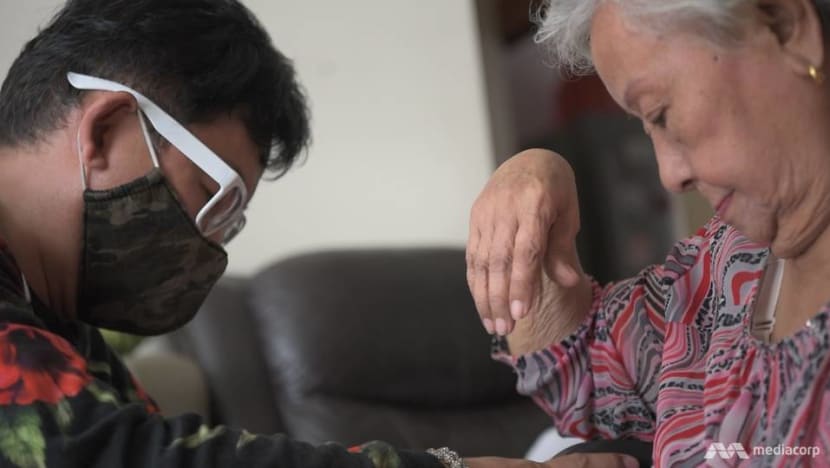
Older folks who worry about caring for elderly parents after their own retirement can consider what Terry does.
He and his four siblings currently support their parents, aged 75 and 85 – so he is helping his father to plough his CPF payouts back into his Retirement Account to earn interest.
“When the day comes when we can't continue to support them, then we spend the payouts to take care of our parents,” he said.
8. I didn’t start planning early for retirement. How can I catch up now that I’m older?
You can consider monetising your HDB flat, Chuin Ting suggests, through the Lease Buyback Scheme. It allows you to sell part of your flat’s remaining lease back to the Housing Board, while continuing to live in your house in retirement.
These proceeds will be put into your CPF Retirement Account. You can then tap these funds to join CPF LIFE, which would provide you with a monthly income for life – and any excess proceeds can be cashed out.
Those with families can also have spouses or working adult children top up their CPF accounts.
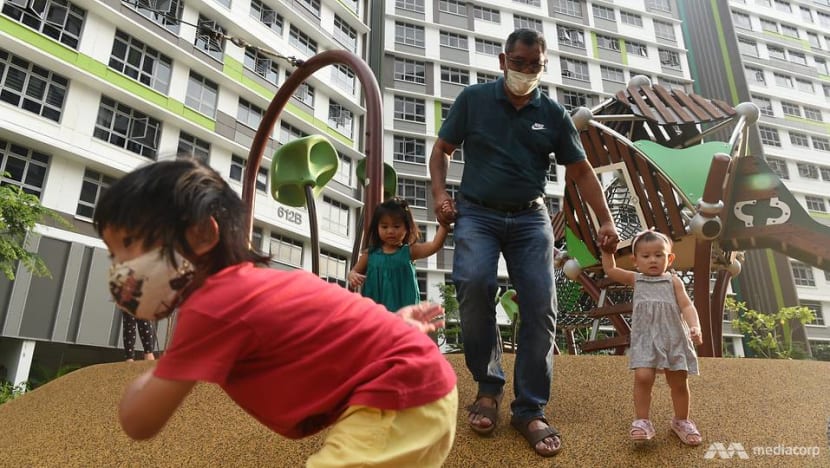
9. What if I don’t have enough medical insurance coverage, especially if I’m older?
Coverage for critical illness is vital. About one in four people develop cancer in their lifetime; and should you get it in your old age, Kenneth noted, you would need to be able to pay for treatment.
But some in the older generation won’t have bought enough insurance when they were younger. Those looking to buy a policy now, especially if they have an existing condition, might face high premiums or be turned away by insurers.
This is the situation Muthukumar is now facing in his 50s. He has a minor medical condition, although it isn’t life-threatening nor a financial burden at this point. “We find it is very difficult to get hospitalisation benefits,” he says.
The good news is that there is MediShield Life, which covers all Singapore residents to help pay for large hospital bills and selected outpatient treatments such chemotherapy.
If he needs to be hospitalised, Chuin Ting advises that he goes to a B2/C ward in a public hospital, for which MediShield Life benefits are sized.
Muthukumar can also choose to join CareShield Life – a long-term care insurance scheme that provides basic financial support should Singaporeans become severely disabled, especially in old age. It would cover his personal and medical care for a prolonged duration.
This story by CNA Insider was done in collaboration with the Central Provident Fund Board. To start planning for your retirement, visit cpf.gov.sg/BeReady.












